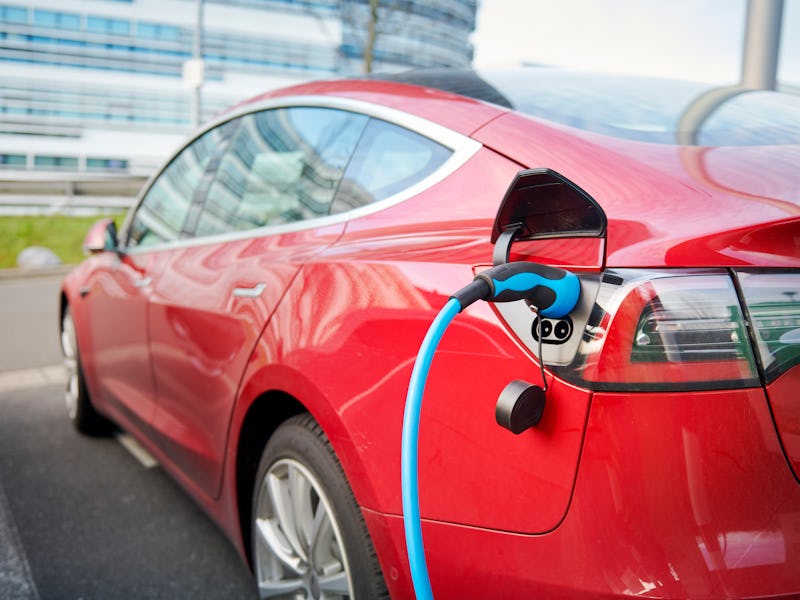Elon Musk: Tesla faces battery woes, but future will 'blow people's minds'
The Tesla CEO suggested that the long-awaited Battery Day could take place in April.

Tesla, the electric car maker, has a bit of a power problem.
During the company's fourth-quarter 2019 earnings call last month, CEO Elon Musk revealed that a major challenge is scaling up battery production. This, he noted, would be "very fundamental and extremely difficult." The goal, he explained, is to both supply enough cars for mass-market vehicles like the Model 3 and Model Y while also lowering the batteries' cost per kilowatt.
See also: Leaked: Elon Musk’s plan for Tesla is all about car deliveries and solar roofs
It wasn't all doom and gloom. Musk confirmed that the long-awaited Battery Day, where the company is set to explain its latest advancements, would likely take place around April.
On Monday, Musk confirmed that the April event would take place at the Giga New York facility, previously known as "Gigafactory 2." This facility is where Tesla produces products like the Solar Roof, a product that's experienced delays due to its dependence on the Powerwall battery pack. A lack of batteries delayed the rollout, a situation Musk claimed had been resolved in March 2019 after the company ramped up production.
The Battery Day event, Musk said during the earnings call, would outline a "very compelling story" about the company's advancements and "blow people's minds," adding that "it blows my mind, and I know it!"
For Tesla, the battery is critical. The company has made its name in producing cars powered entirely from energy stored in lithium-ion batteries. Every car Tesla ships comes with a battery inside.
That's both a strength and a weakness. Tesla has developed expertise and capabilities in batteries that have enabled it to offer cars with hundreds of miles of range. But some of these batteries can measure up to 100 kilowatt-hours, and in early 2016 Tesla was paying around $190 per kilowatt-hour for batteries. Demand for the company's cars has also soared since the introduction of the Tesla Model 3 sedan in July 2017, sending the total number of Teslas on the road from around 250,000 in mid 2017 to nearly one million today. Tesla needs lots of batteries, and cheap.
This dependence has caused issues in the past, particularly as Tesla doesn't just use batteries for cars. Musk explained in March 2019 that ramping up production for the Model 3 left fewer resources for the Powerwall home battery and accompanying Solar Roof.
A Tesla Model 3.
On Wednesday, Musk suggested that this issue was rearing its head again. The company unveiled the Tesla Semi truck back in November 2017 with a suggested production date of 2019. But this week, Musk explained that the giant vehicle required so many battery cells that the company has not accelerated production just yet. Instead, the focus has been on supporting the Model 3 and upcoming Model Y SUV.
Tesla has been gradually boosting its battery output, working with its battery partner Panasonic at the Nevada Gigafactory. In August 2018, the company announced it had reached an annual production rate of 20 gigawatt-hours, more per kilowatt-hour than all other automakers combined.
But Musk wants to go even higher. During the company's second-quarter earnings call in July 2019, he called for the company to reach Terawatt-hour levels of output: “In order to really make a fundamental shift in the world’s energy usage and really transform things to a sustainable energy future, if you’re not in the terawatt-hour range, it’s like, it’s a nice news story but it is not fundamentally changing the energy equation." At that point, the Nevada Gigafactory was producing 28 gigawatt-hours annually, and when extra factories in Japan were included Tesla's total output was somewhere around 35 gigawatt-hours.
A Tesla Model S.
So what's Tesla to do? The answers may come in the Battery Day, a forthcoming explainer that could take place in April. The day is expected to be similar in setup to the Autonomy Day in April 2019, where Musk explained to investors the company's progress on full self-driving capabilities.
What will they show? One of the standout features may be the company's Maxwell Technologies acquisition. The $218 million deal, announced February 2019, brings in a firm working on exotic technologies like dry electrodes and ultracapacitors. The firm has also identified a pathway to raising battery density to 500 watt-hours per kilogram. Current batteries tend to weigh around 300 watt-hours, but a jump to 500 could enable advanced uses like an electric plane.
Musk confirmed during Wednesday's call that Tesla is working with Maxwell, while also stating that its ultracapacitor technology is an "important piece of the puzzle." This exotic technology could transform how energy is managed within the car, and Musk was actually planning to do his PhD at Stanford University on them before he dropped out.
But whether it's high-density batteries or advanced breakthroughs, the fundamental message is clear: Tesla needs more batteries, and fast.
"We have to scale battery production to crazy levels that people cannot even fathom today," Musk said. "That's the real problem."